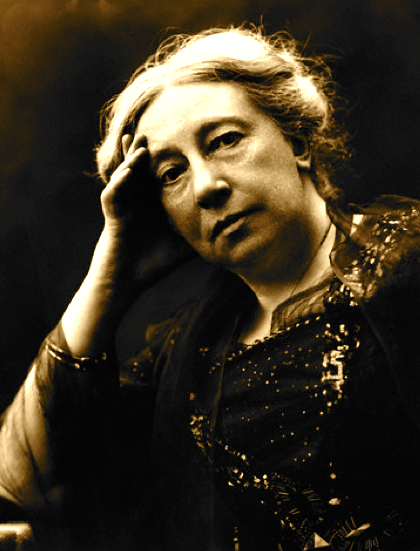Lady Gregory was born Isabella Augusta Persse on March 15, 1852 in Roxbury, County Galway, Ireland. She was an Irish dramatist, folklorist and theater manager. With William Butler Yeats and Edward Martyn, she co-founded the Irish Literary Theatre and the Abbey Theatre, and wrote numerous short works for both companies. Lady Gregory produced a number of books of retellings of stories taken from Irish mythology. Born into a class that identified closely with British rule, her conversion to cultural nationalism, as evidenced by her writings, was emblematic of many of the political struggles to occur in Ireland during her lifetime.
Lady Gregory is mainly remembered for her work behind the Irish Literary Revival. Her home at Coole Park, County Galway, served as an important meeting place for leading Revival figures, and her early work as a member of the board of the Abbey was at least as important for the theatre's development as her creative writings. Lady Gregory's motto was taken from Aristotle: "To think like a wise man, but to express oneself like the common people."
The woman George
Bernard Shaw once described as "the greatest living Irishwoman" died on
May 22, 1932 at her home from breast cancer, and is buried in the New Cemetery
in Bohermore, County Galway. The entire contents of Coole Park were auctioned
three months after her death and the house demolished in 1941. Her plays fell
out of favor after her death and are now rarely performed. Many of the diaries
and journals she kept for most of her adult life have been published, providing
a rich source of information on Irish literary history during the first three
decades of the 20th century.



No comments:
Post a Comment